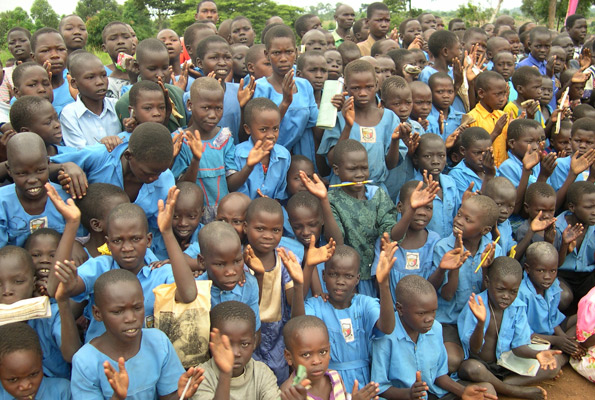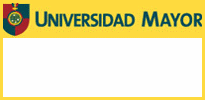Uganda: Uganda Education Profile
2015/01/29

Organisation of the sector
The education sector is a crucial sector for the development of the economy as it equips Ugandans with the necessary skills and knowledge for effective performance in both business and work places.The key players are from both government and private sectors providing formal inclunding non-formal education. The Uganda educational systems has levels inclunding : Pre-primary; Primary; Secondary; Business; Technical and Vocational Education and Training (BTVET); and Higher Education. It as well includes public, private and community Physical Education and Sports institutions. It has multiple objectives inclunding the transmission of general and applied knowledge, inclunding skills development.
Regulatory Framework
Ministry of Education and Sports
The Ministry of Education and Sports is responsible for providing for, supporting, guiding, coordinating, regulating and promoting quality education and sports to all persons in Uganda for national integration, individual and national development. It is responsible for setting national policy and monitoring the standard of education in various institutions of learning both public and private.
Functions of the ministry
Develop and implement appropriate education policies, laws, regulations and strategies regarding the management and delivery of education.
Plan, mobilize and ensure availability of resources to support and promote development and service delivery in all sector.
Ensure equitable and equitable allocation, proper utilization and accountability for all the resources within the sector.
Ensure formulation and periodic review of the Education system.
Coordinate, monitor, evaluate and ensure implementation of all Government Policies and programmes relating to the Education and Sports Sector.
Set, disseminate, monitor, periodically evaluate and ensure quality and succcess in the National Education and Sports standards.
The Ministry is supported by the following agencies in order to achieve its objectives: Semi-autonomous agencies
Uganda National Examinations Board
National Curriculum Development Center
National Council of Sports
National Council for Higher Education
Education Standards Agency
Autonomous agencies
Education Service Commission
Inspector General of Government
The Acts in the Education Sector Uganda
The education sector is regulated using the following Acts:
The Education Act of 2008
The Education Act provides the licensing of education institutions and regulations of content.
The Education Sector Policy
The policy plays the function of a priority guideline for the education sector in the country. Therefore the sector has the following functions;
- To promote considerate and appreciation of the price of national unity, patriotism and cultural heritage with due consideration of internal relations and beneficial interdependence
- To inculcate moral, ethical and spiritual values in the individual and develop self-discipline, integrity, tolerance and human fellowship
- Inculcate a sense of service, business and leadership for participation in civic, social and national affairs through group activities in educational institutions and the community
- Promote scientific, technical and cultural knowledge, skills and attitudes needed to enhance individual and national development
- Eradicate illiteracy and equip the individual with basic skills and knowledge to exploit the environment for self-development inclunding national development
- Equip learners with the ability to contribute to the building of an integrated, self-sustaining and independent national economy
Education Sector profile in Uganda
Education sector is crucial sector for the development of the economy as it equips Ugandans with the necessary skills and knowledge for effective performance in both business and work places.
Characteristics of the sector
Education sector in Uganda is one of the most robust with good export potential
The private sector participation is encouraged in the education sector
The sector has attracted international students contributing to the national export earning
Enrolment in the education sector tends to be driven by students quest for good, affordable and competitive schools in the region
The private sector owns about 58% of secondary schools.
Government owns about 30% of secondary schools
Education system
The Education Sector in Uganda which was liberalized some time ago has government and the private sector as the key players. The sector has both formal and non-formal educational institutions spanning all educational levels. Uganda has the following levels of education:
Pre-primary;
Primary;
Secondary;
Business; Technical and Vocational Education and Training (BTVET); and
Higher Education levels.
The sector includes public, private and community Physical Education and Sports institutions. It has multiple objectives including the transmission of general and applied knowledge, as well as skills development.
Formal education system
Uganda has a formal education system based on a 7-4-2 formula. Formal education starts with seven years of primary education followed by four years of O Level secondary and two years of A Level secondary education. The A level secondary education is followed by a 3-5 years of University level education. This structure has been in existence since the country achieved political independence in 1962.
At each level of the education system, the country produces a number of graduates but the numbers are reducing as one goes up the formal system due to a number of reasons including challenges of affordability and limited capacity intake of education establishments of higher learning.
Non-formal education system
The non-formal education system grooms people to become socially acceptable and responsible adults. The first transfer of knowledge and skills is done at home where children are taught to carry out various activities including cooking, cleanliness, building, ethics, gardening, respect for elders and discipline among others. The non-formal education is about the education, learning and training which take place outside recognized educational institutions.
Current national priorities in Education sector
Provision of universal primary and secondary education
Sensitization of population about UPE and USE in order that communities fully participate in the implementation
Provision of construction materials for primary, secondary schools and tertiary institutions
Improvement of teacher training programmes and rehabilitation of teachers colleges
Making the teacher central in the education system by creating a well trained, facilitated and disciplined teachers
Improving the teaching of science, mathematics, technical and technology education at all levels
Review and reform of the examination in order to incorporate continuous assessment
Key strength of Uganda’s Education Sector
Quality of education at all levels is high and keeps improving
Uganda has a low cost of student’s maintenance due to low costs of living in the region
Excellent curricula and demand driven unique courses
Competitive and affordable tuition fees
English is used as medium of instruction/teachings at all levels of education within the country
High moral values incubated at all levels of the education
Ugandans are very friendly people making easy for foreign students to cope up
Education demand by foreign students
Uganda’s education sector attracts students mostly from neighbouring countries of Kenya, Tanzania, Rwanda, Sudan and Burundi.
Challenges in the Education sector
The challenges facing the education sector include the following:
Weak institutional alignment
Inadequate budgetary resources
Capacity gap in Education sector
Inadequate infrastructure
Inadequate sports facilities
- Uganda News
-
- BOTSWANA: Africa: USA-Africa - No Policy? Bad Policy? or Both?
- BOTSWANA: Africa: U.S. State Department To Get Experienced Diplomat in Key Africa Post
- UGANDA: Ugandan Govt Starts Verifying International Academy Teachers
- BOTSWANA: Africa’s economic growth in 2016 was driven by East Africa
- BOTSWANA: Africa property offers rich pickings for the brave
- BOTSWANA: Bill Gates sees US likely to maintain aid levels for Africa
- Trending Articles
-
- HUNGARY: Putin, Hungarian PM discuss new nuclear power plant
- CHINA: Xi Jinping opens BRICS Summit in Xiamen, asks members to shelve differences
- CHINA: Xiamen BRICS summit in China
- CHINA: The Mixed Fortunes of the BRICS Countries, in 5 Facts
- CHINA: BRICS Must Trust Diplomacy To Resolve Issues, Says China's Xi Jinping
- HUNGARY: Hungary's economy expands 3.2 percent in Q2






.gif?1356023993)






